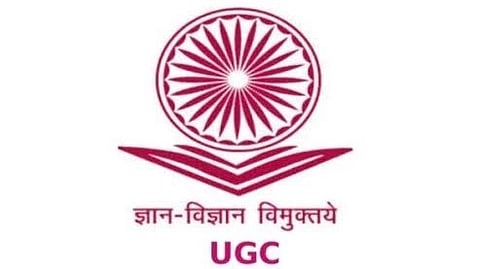
- Home
- न्यूजग्राम
- NewsGram USA
- India
- World
- Politics
- Entertainment
- Culture
- Lifestyle
- Economy
- Sports
- Sp. Coverage
- Misc.
- NewsGram Exclusive
- Jobs / Internships

In a fresh crackdown on unrecognized higher education institutions, the University Grants Commission (UGC) on 27th October 2025, has released a list of 22 fake universities operating across India, cautioning students and parents against enrolling in them. The list, issued on the UGC’s official website, highlights that these institutions are not authorized to confer any degrees, and qualifications obtained from them hold no legal or professional validity.
According to the commission, Delhi tops the list with 10 fake universities, followed by Uttar Pradesh with 8, while the remaining are scattered across states including Kerala, Karnataka, Maharashtra, Puducherry, and West Bengal. Among those flagged are institutions with misleading names resembling legitimate universities, such as “Vishwakarma Open University for Self Employment,” “Adhyatmik Vishwavidyalaya (Spiritual University),” and “Commercial University Ltd.” in Delhi.
The UGC clarified that under the UGC Act, 1956 (Section 22), only universities established through a Central, State, or Provincial Act, or institutions deemed universities under Section 3, are authorized to award degrees. Any other entity doing so without statutory approval is deemed illegal and fraudulent. The commission also warned that such institutions mislead students by using the term “university” in violation of the UGC (Promotion of Academic Integrity and Prevention of Plagiarism in Higher Educational Institutions) Regulations.
In its statement, the UGC emphasized that the aim of releasing this list is to protect students from academic exploitation. The commission advised aspirants to verify the authenticity of universities through its official website before taking admission. It reiterated that fake universities cannot award degrees, diplomas, or certificates recognized by the Indian government or any statutory authority.
Education analysts suggest that the persistence of fake universities reflects regulatory loopholes and low awareness among students, especially in tier-2 and tier-3 cities. These fraudulent institutions often capitalize on the rising demand for higher education, offering quick degrees at low fees or through distance-learning models without proper accreditation. Additionally, lax enforcement at the state level allows such entities to function under the guise of “trusts” or “societies,” bypassing UGC scrutiny until complaints surface.
Experts argue that the need for more digital transparency and public awareness campaigns is crucial to prevent such scams. The UGC has been working with state governments to identify and act against such entities, but enforcement remains a challenge due to overlapping jurisdictions and limited monitoring resources.
Students can identify fake universities by checking for UGC recognition, NAAC accreditation, and the AICTE or NMC approval (for technical and medical programs, respectively). Institutions not listed on the UGC’s official portal or those offering degrees online without regulatory backing are likely to be unrecognized.
The UGC reaffirmed that it would continue to monitor and act against institutions deceiving students in the name of higher education. “Public awareness is the most powerful tool to counter such exploitation,” a senior UGC official stated, urging students to be cautious before enrolling anywhere.
As India expands its higher education landscape, the crackdown on fake universities serves as a reminder of the importance of due diligence, transparency, and vigilant regulation to preserve academic integrity and protect student interests. [Rh/MY/VP]
Suggested Reading:
